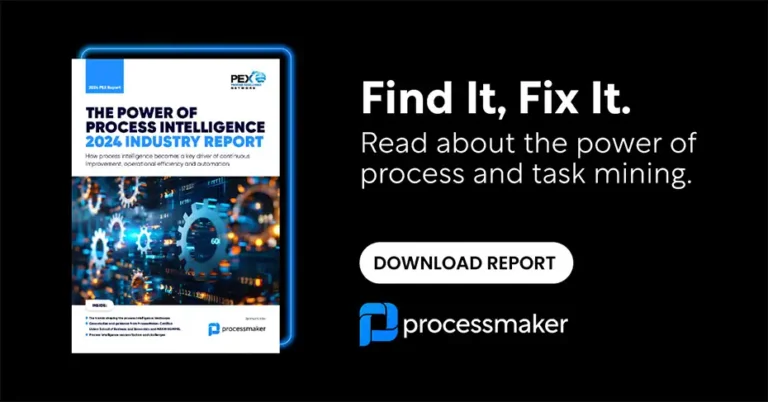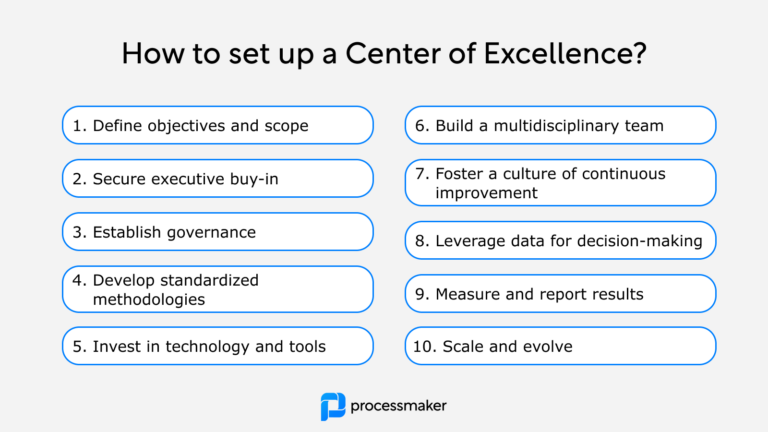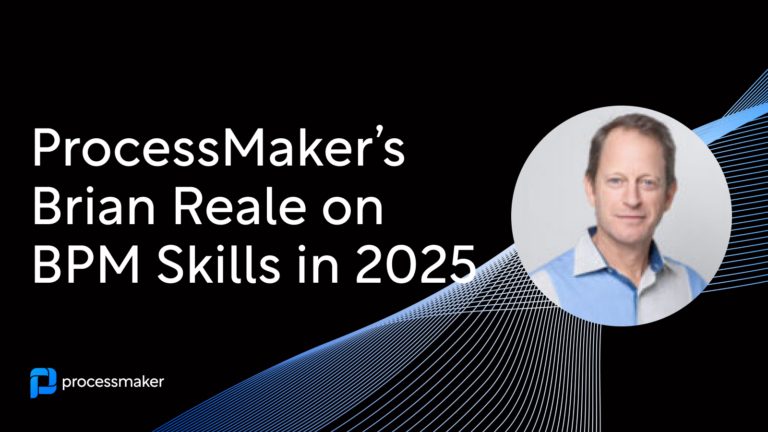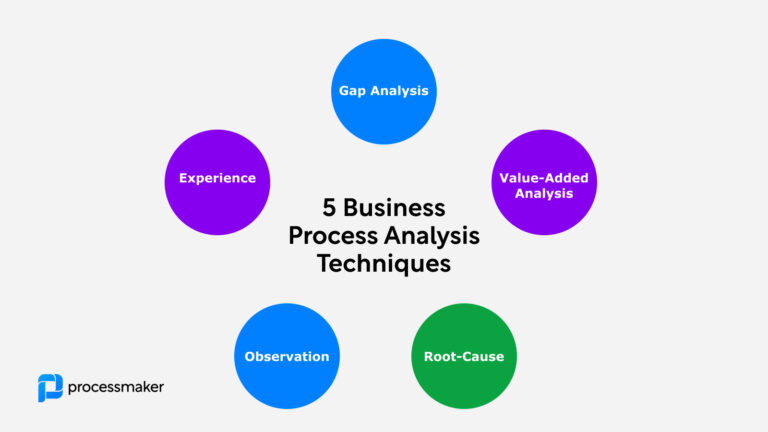This article aims to help educate those in the market for workflow and business process management software (BPMs), particularly those who plan on deploying in the cloud. You may be surprised to learn that while many BPM solutions have a cloud offering, only a handful of BPM platforms were actually re-architected for the cloud. The three platforms that lead the pack when it comes to the cloud are Appian, Pegasystems, and ProcessMaker. All three are Amazon Web Services Technology Partners and understand cloud better than any other BPM player in the market.
Why Cloud BPM solutions?
If you’re not already convinced of the necessity of cloud when deploying workflow & BPM software, let’s quickly go over the biggest benefits. Let’s start with speed, that is the speed in development and design of workflows as well as speed in their execution, and reliability. The cloud provides the most reliable and available environment for your BPM platform and workflows to live with 99.9999% uptime, redundant servers through the use of load balancing, auto-scaling capacity based on predetermined thresholds, and last but not least, pay as you go pricing so you only pay for the compute resources you consume. Further, by choosing a BPM solution with a tight cloud partnership and cloud architects on board, you essentially inherit their experience and expertise when approaching future cloud projects.
1. Scalability and low maintenance
As a business grows and evolves, many companies are discovering that on-premises solutions don’t scale very easily. Often, you’ll have to buy extra hardware to support the increased usage and data storage needed when your operations grow.
On-premise installations also require an on-site team to monitor and manage them. This takes up valuable time, money and resources. It can be a significant investment, particularly if you aren’t an IT-focused organization.
Finally, on-premise installations require constant communication with your BPM support staff in order to manage upgrades. Unless your in-house staff has a high level of technical expertise, these projects can be highly risky.
Cloud solutions, on the other hand, support multi-tenancy without extra costs or overhead. Because all the infrastructure is located off-site under the ownership of a third party, your cloud platform can grow as your usage and data storage needs increase without having to purchase additional hardware.
In addition, cloud BPM providers take care of maintenance for you. They are experts in their application and they know how to keep downtime at a minimum. Through advanced monitoring and management capabilities that are available in the cloud, operations can remain at a consistent speed, even during peak usage. Upgrades are managed by the BPM platform support staff according to clients’ requests, and transitions to new versions are much smoother and faster.
By redirecting energy away from these short-term “firefighting” efforts, your IT staff can devote more time to tackle long-term strategic projects that add value to your business.
2. Accessible anywhere, at any time
81 percent of employees say that they’re highly interested in a job where they can telecommute. Cloud BPM solutions are helping to usher in this new age or work, by allowing users to access your organizational systems from virtually anywhere, and at any time.
Most cloud solutions can be accessed through a browser on any device and BPM platforms with mobile apps can even be accessed on devices like smartphones and tablets. One of the advantages of using a cloud BPM application is that the vendor is now responsible for installing upgrades and security patches. Clients no longer have to plan and manage the installation of patches and upgrades. Additionally, there is no more time and resources spent on performing manual installations of the software.
In the cloud, your data saves automatically on the remote server. Work isn’t lost, even when your Internet connection drops or your local computer fails.
3. Agility and connectivity
Legacy on-premises BPM platforms are traditionally dedicated to a few rigid processes that are difficult to change or cannot be changed. They are often highly brittle and don’t easily integrate with other software in your workflow.
Because cloud BPM platforms are relatively low-code, your organization now has more flexibility to change processes as business needs change, grow and evolve over time. Thanks to this increased agility and flexibility, it’s now possible to experiment with and deploy processes in a matter of weeks rather than over many months.
Cloud BPM solutions are lighter and more agile than legacy systems. They can also connect to other software tools through REST endpoints. This technology shift helps improve your return on investment for both the BPM platform and third-party software tools.
With connections between different applications, your organization can integrate features from your BPM platform into other applications, and vice versa. For example, add functionality from a favorite software tool or access processes and applications from a single portal.
4. Security
On-premises data security can be a daunting task, especially for organizations without a great deal of cybersecurity knowledge. If you experience a data breach, your security team is entirely responsible for closing the exposure to sensitive information and working with risk management and legal to address potential privacy statute concerns.
When data is in the cloud, providers such as AWS, Microsoft Azure, and Google Cloud Platform are responsible for securing your data. These companies have large teams of engineers and resources dedicated specifically to preventing security breaches. These data security services come at a minimal cost, along with the costs of server hosting. What’s more, large-scale public cloud providers such as Amazon, Microsoft, and Google are compliant with industry standards and ISO-certified.
It’s important to note that questions such as “data sovereignty” and regulations like the GDPR (General Data Protection Regulation) are complicating data storage in the cloud. In certain circumstances, these issues may prevent you from using the cloud. However, the benefits of the cloud are so alluring that cloud providers will undoubtedly find ways of addressing these issues while remaining compliant with all applicable laws and regulations.
Top 3 AWS Cloud BPM solutions in detail
ProcessMaker
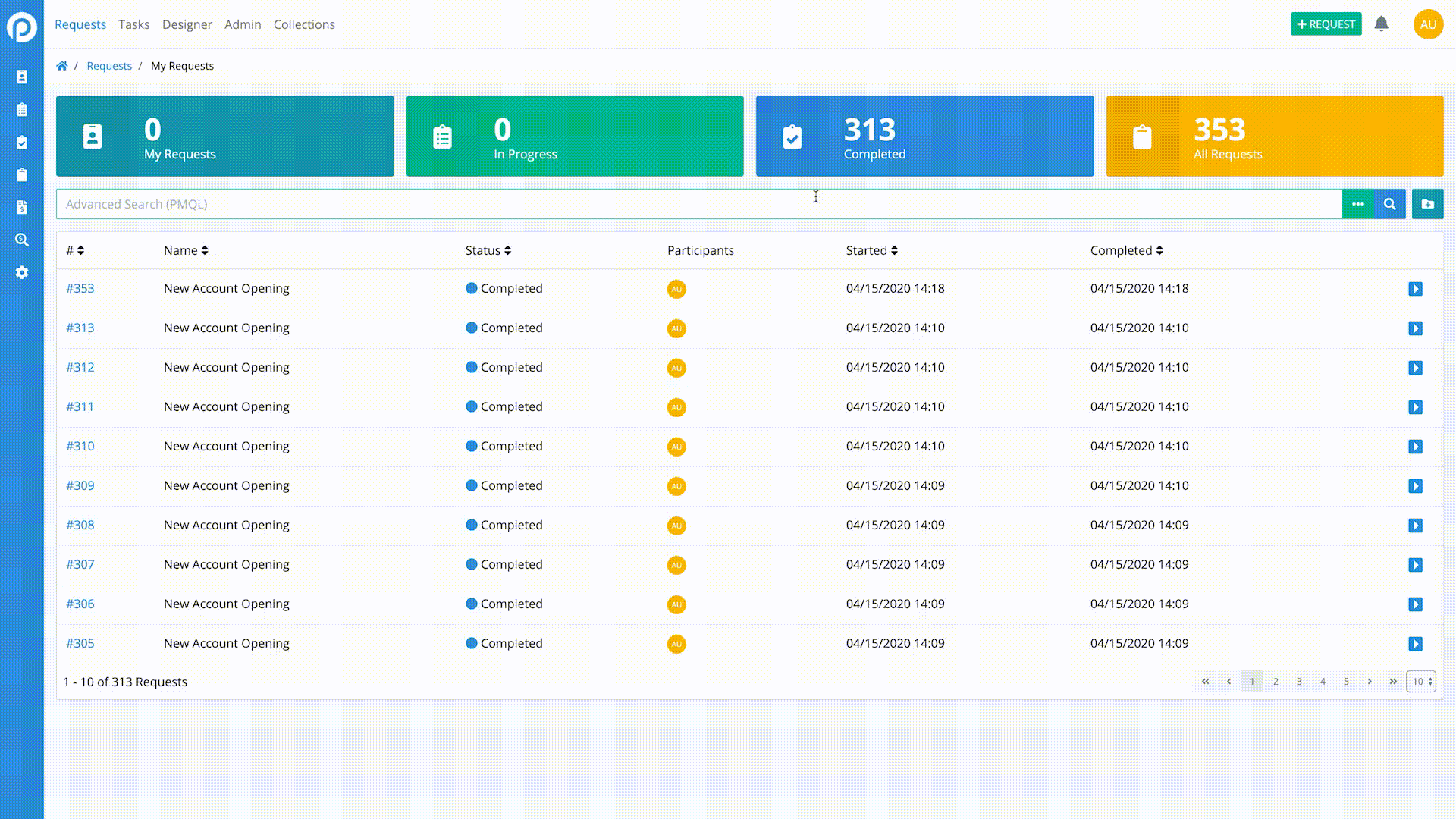
ProcessMaker is a low-code intelligent business process management software (iBPMs) platform that helps break down operational silos and drastically improve efficiency. Its intuitive workflow automation solution empowers cross-departmental collaboration between IT and citizen developers.
ProcessMaker is an Amazon Web Services Advanced Technology Partner, namely by completely rearchitecting its platform to leverage cloud technologies to power its core product. Of all BPM solutions in the market, they are among the top three in terms of cloud innovation due to the nature of their core open source offering and supporting cloud technologies that drive the highest levels of performance, availability, and security. ProcessMaker leverages GitHub, Docker, and CircleCI along with AWS and its growing in house AWS talent in DevOps makes their cloud offering worth checking out. ProcessMaker has stated its intention to develop and support offerings on other clouds, namely Microsoft Azure and Google Cloud, in the years to come.
Read our BPM solution whitepaper or schedule a demo
Appian
Appian provides a low-code development platform that accelerates the creation of high-impact business applications. Many of the world’s largest organizations use Appian applications to improve customer experience, achieve operational excellence, and simplify global risk management and compliance.
When Appian says “high-impact business applications” they are referring to workflows and business processes. Many people confuse these kinds of descriptions and believe the platform is for developers to build mobile apps or something similar. That is not the case, this is simply how many BPM players describe themselves.
Appian has a true cloud-based offering and free trial available on the AWS Marketplace so users can deploy Appian in a cloud environment and test it before making any decisions. This gives Appian a major competitive edge. Appian is also doing a great job leveraging their AWS partnership as they can also deploy their cloud BPM solution on the AWS GovCloud, positioning them to become the choice cloud BPM for government institutions. On the flip side of things, Appian’s cloud offering will require more technical knowledge than usual, particularly if you deploy Appian on the AWS Marketplace. Appian also holds two AWS competencies for healthcare and life sciences, further positioning themself as a BPM for the public sector.
Pegasystems
Pegasystems Inc. is the leader in customer engagement and digital process automation software. Pega’s adaptive, cloud-architected software empowers people to make decisions and get work done. Pega has delivered software powered by advanced artificial intelligence and robotic automation to help the world’s leading brands achieve breakthrough results.
Pega has competency in healthcare and is a member of the public sector, non-profit, government, and education programs offered by Amazon Web Services. However, Pega’s BPM solutions cannot be deployed on the AWS GovCloud. Pega also offers professional services through AWS for custom application development and system integration initiatives. Pega was a founding member of the healthcare competency program with AWS and is also a member of the software as a service (SaaS) partner program. Pega’s enterprise clients are in the Global 200 and they choose AWS because their clients require a level of capability, innovation, and compliance strength AWS brings and Pega can, therefore, deliver to customers.
Conclusion
With the BPM industry having a traditionally on-premises deployment practice, only a few companies were early to cloud adoption and are now reaping the rewards and driving better outcomes for customers. Most BPM providers now offer some form of cloud deployment or will shortly, but fully adopting and mastering cloud after such a digital transformation takes time and talent. It’s important to know that your BPM provider has the technical team to support the cloud their platform is built on. Make sure they understand the cloud and aren’t just following trends and of course, if you’re already on the cloud, go with the platform that’s built for your cloud. For most enterprises that have some form of hybrid deployment, all three products above and many other BPM solution providers can still support your needs with hybrid solutions for cloud and on-premises deployments.

